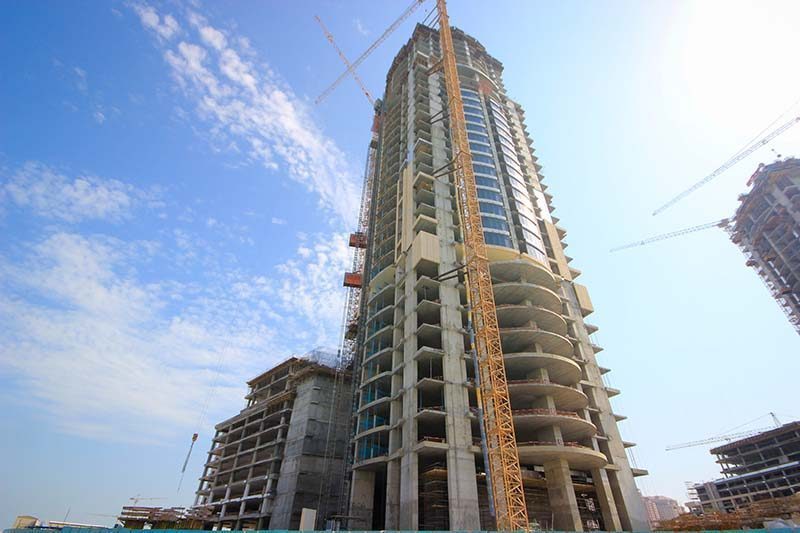
A criminal court in Qatar has found a local company guilty of negligence and violating safety regulations after a worker fell to his death from an under-construction tower at the Pearl-Qatar last year.
The Nepali man worked for Redco Al Mana, which is building two towers for the island’s Abraj Quartier district. That area will eventually consist of 200 waterfront townhouses and seven residential towers – two of which form the “gateway” to the Pearl, according to Redco’s website.
The company was fined QR100,000 ($27,448) over the death, and its head of safety and security was also convicted in the case and fined QR10,000 ($2,744).
Redco and the manager were also ordered to pay QR200,000 ($54,896) in blood money to the victim’s family.
The verdict was handed down in April, but the reasoning behind the court’s verdict was issued only last week, and first published in Al Raya today.
The trial
The incident took place in April 2014, when, according to the coroner’s report, the worker fell off scaffolding on the seventh floor of one of the under-construction Abraj towers, and died of head injuries.

According to court documents seen by Doha News, the scaffolding that he fell from was not completely secured, as there should have been metal rods fixed on the sides. Safety harnesses and lighting of the area were also deemed inadequate.
The company and its senior employee were convicted of negligence, not setting up an effective supervision system that prevents serious accidents from taking place, failing to have proper safety procedures in place that led to the worker’s demise and not informing the worker of the dangers that come with the job.
In his written verdict, Judge Yasser Ali Al Zayyat said:
“Based on what was presented (to the court after reviewing) the incriminating evidence, it has been proven that the defendants committed the crime with all its aspects, so the court penalized them with a fine and blood money for the victim’s (family).”
In Qatar and other GCC countries, blood money is an Islamic provision that must be paid if a judge finds a person guilty of causing death or injury to another person, either accidentally or intentionally.
Defense arguments
During the court hearings, the company’s employee denied the charges, saying that he routinely inspected the scaffoldings, but that on the day of the accident, another employee did the inspection.

He added that the victim did not “take permission” from the project’s engineer to go up to the seventh floor, despite being required to do so.
For his part, the project leader, Emad Abdel Rahman, testified that the victim’s death was “destiny and God’s will,” adding that he was willing to pay any compensation and transfer the body back to the victim’s country for burial.
He said that the head of safety and security did not know that the worker had gone up to the seventh floor. He explained that every group of 10 workers had a leader, and that it was this leader who requested the worker go up.
Previous court cases
Qatar’s court has issued similar verdicts in the past, though such decisions appear to be rare.
In late March, a local company was found guilty of involuntary manslaughter after one of its construction workers was killed working on a sewer project near the old airport. The company was fined thousands of dollars.
Amnesty International Researcher Mustafa Qadtri told Doha News at the time:
“This is one tragic case, but there are likely many other construction sites that the authorities need to proactively address. With the workers’ population expected to (keep rising) in the next few years, unless steps are taken, there is a risk that these types of deaths will increase unless more steps are taken.”
In 2013, Qatar’s Labor Inspection Department said that nearly 30 percent of companies working in the country were violating safety standards, the Gulf Times reported. However, they added that most transgressions were minor and simple.
Thoughts?







